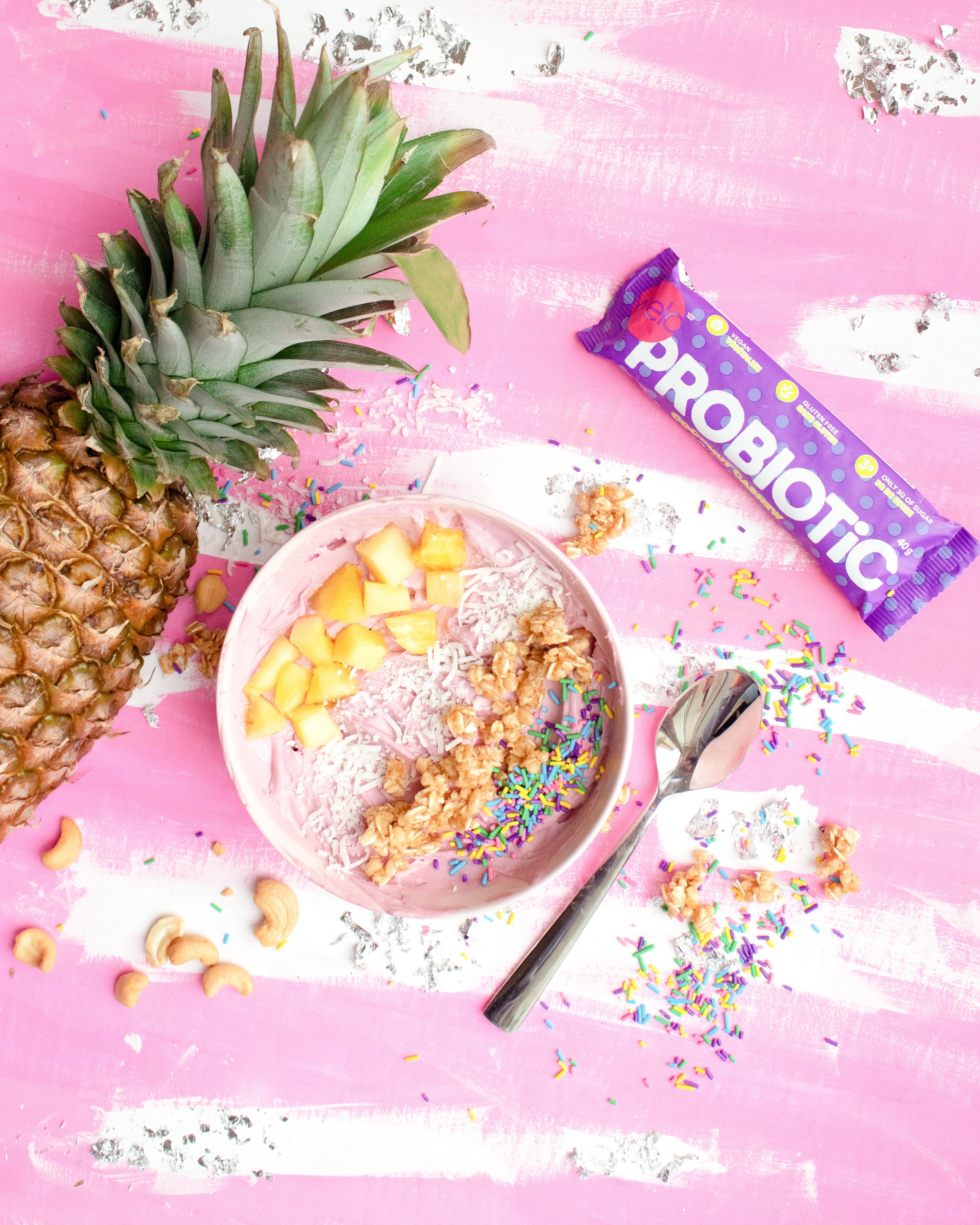
The leaves are changing, the temperature is cooling, and the start of the holidays is right around the corner. There’s so much to look forward to, but getting sick is not one of them. Although fall brings a nice reprieve from the scorching Baltimore heat, it is also unfortunately the start of cold and flu season.
From a nutrition perspective, there are things that can be done to help boost your immune system and decrease your risk of using all of your sick days. It is well known that a healthy diet with minimal processed foods can help support your immune system, as well as regular sleep and exercise. However, probiotics and their connection to the immune system have become a hot topic in the research world.
Not all bacteria are bad; there are thousands of helpful and healthy bacteria that live in your body. A large portion of these live in the gastrointestinal tract and help the body make vitamins, break down food, and aid the immune system. These bacteria do not cause disease and are often referred to as the gut microbiome. The gut microbiome can aid the immune system in several ways.
- To function, bacteria must attach to specific binding sites throughout the GI tract. If the binding sites are all taken by good bacteria, it is much harder for pathogenic, or disease-causing, bacteria to take hold.
- Bacteria need nutrients to survive. If you have a sufficient amount of healthy gut bacteria then these will take up all of the nutrients, leaving pathogenic bacteria without.
- Bacteria also produce something called bacteriocins, which can slow down the growth of pathogenic bacteria.
These good bacteria can be thought of as guards, as they protect the body from attack against disease-causing germs.
There are probiotics and then there are prebiotics. While the probiotics are the actual live bacteria, the prebiotic provides the nutrients the probiotic needs to function. Aside from supplements, you can get these from many food sources. Probiotics can be found in yogurt, Kefir, kimchi, sauerkraut, and kombucha. Prebiotics can often be found in high-fiber foods like bananas, oats, and asparagus. While eating these foods daily appears to have health benefits, it is also often advised to eat these foods when on an antibiotic as the antibiotic will wipe out all bacteria in the gastrointestinal tract, even the good kinds. This is why you might often have symptoms such as diarrhea and upset stomach when taking an antibiotic. Taking a probiotic a couple of hours after taking the antibiotic can help offset those symptoms. Refrain from taking the probiotic with the antibiotic as the antibiotic will kill the probiotic rendering it useless.
Research is still ongoing about the uses of probiotics in the treatment and prevention of illnesses. Talk to a healthcare professional if you feel like you would benefit from supplementation.
About the Author

I am a Licensed Registered Dietitian with experience in critical care, cardiology, weight loss, allergy services, and food service. I graduated from Penn State University with a BS in nutrition and finished my RD training at the University of Maryland. I am currently in PA school and am looking forward to combining my love of nutrition with medicine. After moving to Baltimore in 2019, I did a trial class at PUSH511 Fitness as I was looking for accountability and to meet new people. When I walked into the gym for the first time, everyone was congregated on one side cheering on a member who was struggling with ring muscle-ups at the end of the workout. It was such an uplifting moment to witness. I left the gym that day in dire need of ginger ale, but also very excited about this amazing and supportive community I had stumbled upon. I am grateful for this opportunity to give back and share my love of nutrition!
Sources
https://my.clevelandclinic.org/health/articles/14598-probiotics
https://www.hsph.harvard.edu/nutritionsource/nutrition-and-immunity/


Comments are closed.